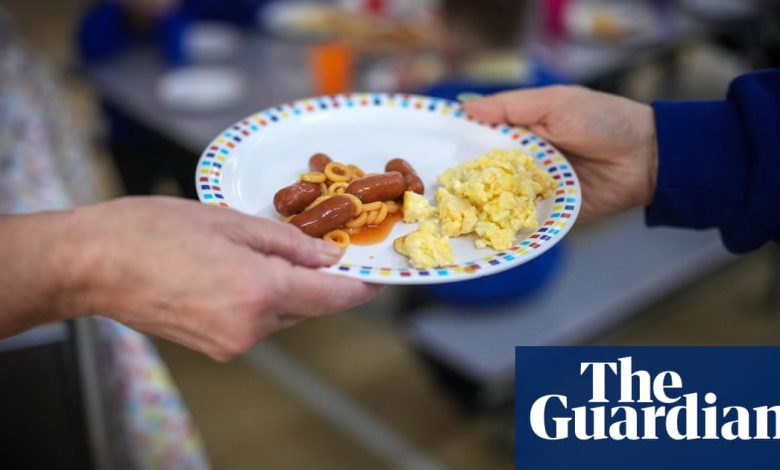Eight in 10 primary teachers in England spending own money to help pupils | Education

[ad_1]
Eight out of 10 primary teachers in England are spending their own money to buy goods for students who are increasingly arriving at school hungry and without the right clothes, according to new research.
Almost a third (31%) of those surveyed said they were seeing more hungry children in class, with 40% reporting an increase in students coming in without proper uniform or a warm winter coat, a National Foundation for Education Research (NFER) survey found .
As a result, teachers, who may be struggling with their own financial pressures, are reaching into their pockets. A quarter of primary school teachers said they spent more than £100 in the past academic year, while almost one in five (19%) said they specifically bought either clothes or food.
Two-thirds of elementary teachers reported spending their own money on classroom materials for art or science, for example, while two in five (42%) paid for learning resources for students, including stationery and revision textbooks.
The crisis is slightly weaker in secondary schools, where just under two-thirds (62%) of teachers and senior leaders – compared to 79% in primary schools – report spending their own money to buy items for their students and schools , with one in five reckoning they have spent more than £100 this year.
Jude Hillary, NFER’s UK co-head of policy and practice, said: “Teachers do their best to meet the pastoral needs of students using their personal resources. This unrecognized, informal support comes at a time when individual teachers continue to face their own financial pressures.”
after the promotion of the newsletter
The report, published on Wednesday, said school finances were deteriorating, with 93 per cent of primary and 87 per cent of secondary school leaders forced to make cuts in at least one area due to cost pressures. One area likely to suffer is school buildings, with almost half (46%) of primary leaders and a third of secondary leaders cutting plans for building improvements.
The NFER Cost of Living report is based on a survey of almost 1,300 teachers and senior leaders in England’s main primary and secondary schools.
Daniel Kebede, general secretary of the National Education Union (NEU), said: “The fact that children arrive at school hungry, in inappropriate clothes and have to be supported by teachers out of their own pockets says all we need to know about the impact, what child poverty and the cost of living crisis are having on children and young people.’
A Conservative Party spokesman said: “Under the Conservatives free school meals were extended to more groups of children than any other government in the last half century – doubling the number of children receiving free school meals since 2010 from a sixth to a third .
“Our plan to prepare children for a brighter future is working as we continue to climb international education rankings and increase school funding to the highest level in real terms.”
[ad_2]




